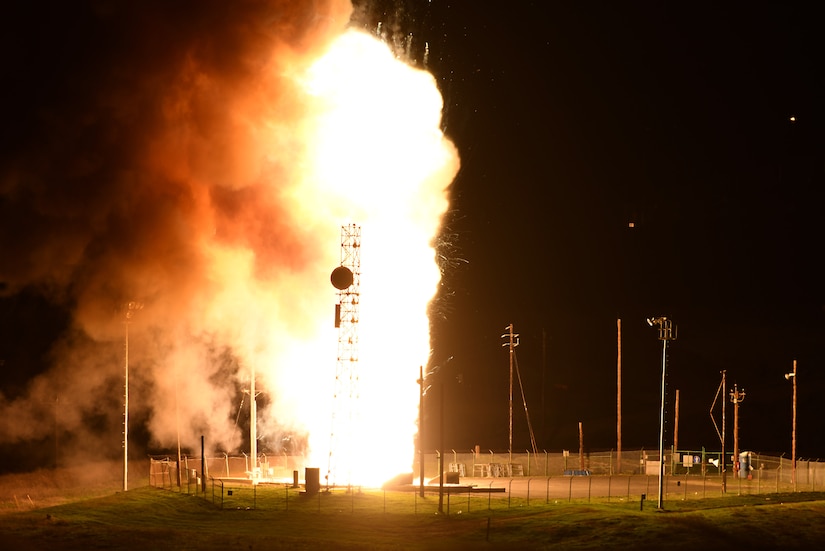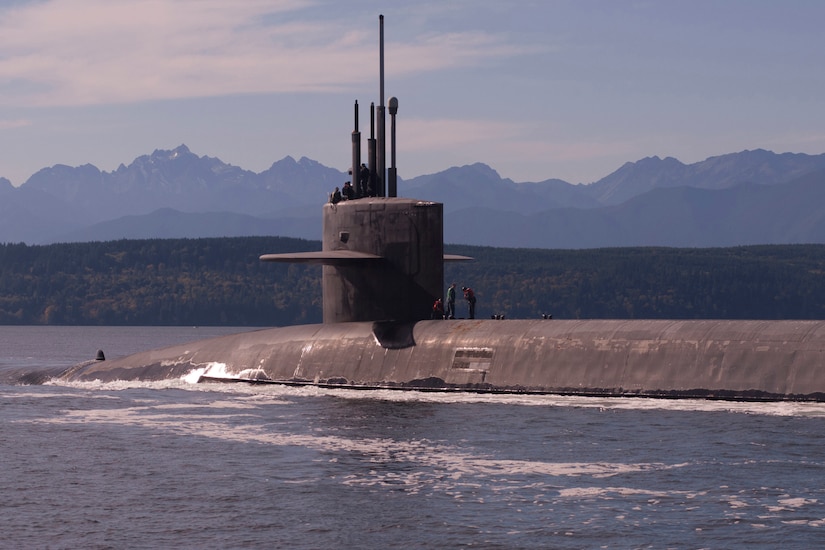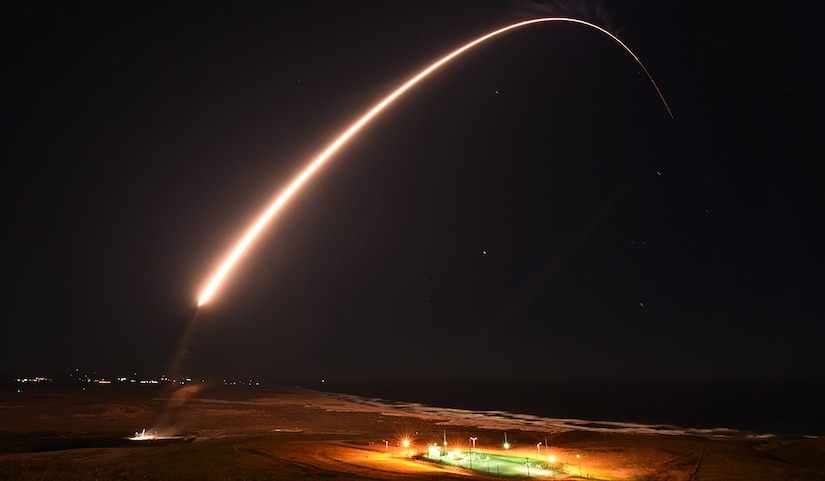Feb. 26, 2021 | , DOD News
America's nuclear triad consists of heavy bombers, submarines and intercontinental ballistic missiles capable of delivering nuclear weapons.
The nuclear triad is important because it's there to deter Russia, China and, to some extent, North Korea and Iran from delivering nuclear strikes on the U.S. and its allies, said Air Force Gen. John E. Hyten, vice chairman of the Joint Chiefs of Staff.

He spoke at the virtual Air Force Association's Aerospace Warfare Symposium today, mentioning aspects of the New START treaty with Russia, which places verifiable limits on all Russian-deployed ICBMs. That treaty is in effect until Feb. 4, 2026.
Hyten said he and other Defense Department officials think the New START treaty is a good thing because it limits nuclear weapons and has a process to verify adherence.
However, the New START treaty should be just the beginning of a larger discussion with Russia and China about placing further limits on nuclear weapons proliferation, he said.

For instance, Russia is building new capabilities — such as nuclear-armed torpedoes, nuclear armed cruise missiles and sea-launched ballistic missiles — that can threaten the U.S. and are not accountable under the treaty.
And, then, there's China, Hyten said. "China is the fastest growing nuclear power in the world. They're building at a percentage level, more new nuclear weapons than anybody on the planet. They're building new platforms. They're building new facilities, new airplanes, new missiles of a variety of types, new hypersonic capabilities, hypersonic capabilities that we have no defenses for, hypersonics that can be nuclear tipped.
"And we have no arms control agreement with China in any way, so we have no insight into their nuclear doctrine," he added. "That is a difficult place to be."

The other problem is that while Russia is finishing its nuclear modernization program and China is in the midst of rapid modernization, the U.S. is just starting its nuclear modernization program, he said.
The U.S. must also have a credible sea-launched cruise missile in order to respond to the Russian capabilities and a low-yield nuclear weapon that can be deployed in small numbers on submarines to deal with the thousands of low-yield nuclear and tactical nuclear weapons Russia is building that aren't accountable with the New START treaty, he said.
"We have to continue to invest in our triad and make sure that we look at all of our adversaries' capabilities because the one thing we don't want is nuclear confrontation and nuclear war on this planet. And the only way to avoid that is to deter our adversaries," he said.
Air Force Gen. Timothy M. Ray, commander of Air Force Global Strike Command, and Air Force Lt. Gen. Thomas Bussiere, deputy commander of U.S. Strategic Command, also spoke at the event.








No comments:
Post a Comment